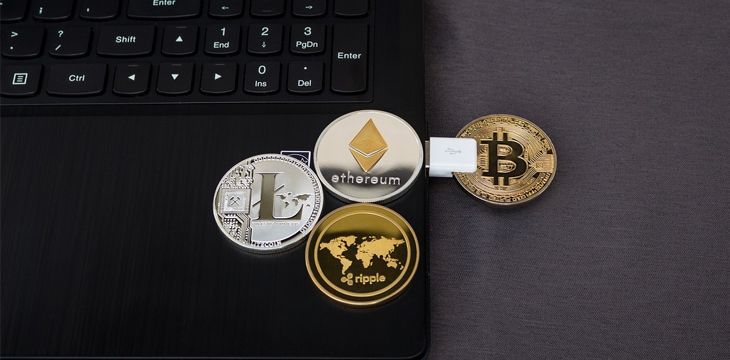|
Getting your Trinity Audio player ready...
|
Digital asset exchanges continue to add new coins and tokens to their listings. Traders win and lose large sums of money based on their price movements, without the assets ever being used for any other purpose. Prices pump and dump. Yet Bitcoin SV, a blockchain with serious technology, an economic model and vision to create real-world economic value, is still missing from several major platforms. What purpose, then, do these trading platforms really serve?
Running an exchange can be extremely lucrative—if its millions aren’t suddenly cleaned out in a security breach.
Coinbase adds more assets
Coinbase (NASDAQ: COIN) recently published an article stating it was “continuing to explore the addition of new assets for customers around the world.”
“These new assets include, in alphabetical order: Aave, Aragon, Arweave, Bancor, COMP, DigiByte, Horizen, Livepeer, NuCypher, Numeraire, KEEP Network, Origin Protocol, Ren, Render Network, Siacoin, SKALE Network, Synthetix, and VeChain.”
There was no mention of what contribution any of these assets could make to the real-world economy, or what benefits would be realized by trading them. The decision appears to be based only on a “technical and compliance review” and popularity with traders.
“Over time we expect our customers around the world will have access through Coinbase platforms to at least 90% of the aggregate market cap of all digital assets in circulation,” the platform stated.
Some of those assets you may have heard of, many of them you probably haven’t. In 2020 there are over 7,680 digital assets listed on exchanges (and several more attempting to be listed). Some of these purport to be “utility tokens” that serve a purpose such as payments or loyalty points on their native platforms. However, it’s extremely unlikely their value derives from these use-cases. Their market caps and unit prices are based on traders’ speculation and public conversations. Some of this chatter is organic, but much of it comes from deliberate attempts to create hype and boost the price, so large holders can sell to newcomers and walk away with dollars.
Ignoring the elephant in the room
According the CoinGecko at the time of writing, the total market cap for all digital assets was US$267,780,759,988. Bitcoin BSV, as the 6th highest-cap asset (4th if you don’t count XRP and Tether, and you shouldn’t) with a market cap of US$978,309,457.
Exchanges continue to explore ways to add obscure and pointless assets while ignoring a well-known asset with the sixth highest market cap. Why is this?
Binance launched in mid-2017 with the goal of listing as many assets as popular. Its timing was impeccable—its platform opened just in time to catch the speculative gold rush produced by ICOs—mainly tokens created using the ERC-20 standard on Ethereum and similar chains. Binance continues to have one of the broadest listings of digital assets available and has fairly loose account registration policies, factors which have made it one of the world’s most popular platforms.
Yet in April 2019 Binance led the charge to delist Bitcoin BSV, based ostensibly on a moral objection to Dr. Wright’s legal threats against individuals he said were posting libelous statements targeting him on social media. On the surface this action would seem counter-productive, if Binance’s goal was to make money. On the other hand, there’s an enormous economic incentive to make BSV disappear, if it presents an existential threat to Bitcoin Core (BTC), the asset referred to most often in the mainstream media as “Bitcoin”. BTC currently has a market cap of US$29.3 billion.
Plenty of well-known exchanges do list BSV. They include Bitfinex, Poloniex, Huobi, HitBTC, OKEx, Bithumb, Bittrex, and KuCoin. Yet it is noticeably absent from large exchanges that haven’t declared opposition to it, like Coinbase.
As well as raking in millions in trading fees, exchanges have been accused of “requesting” exorbitant “listing fees” from asset projects chasing an appearance on multiple platforms. A listing creates prominence and attention, as well as trading activity that could create a speculative boom. A listing fee may be paid 100% or part thereof in the currency seeking a listing, which creates an incentive for the platform to promote the asset.
BSV leaders have, in the past, refused to pay these fees (which amount to little more than bribes). Other than political pressure, this is possibly one major reason for BSV’s absence on some platforms.
‘Bucket shops’ and ‘casinos’ or useful services?
Dr. Craig Wright has never hidden his disdain for exchanges, or the people who make money promoting them (and the assets listed there). He’s said he doesn’t care about the Bitcoin price nor if people trade it. He frequently refers to exchanges as “bucket shops” and “casinos.”
“[They are] the foundation for schemes like Tether, ICOs [initial coin offerings], and the bucket shops people call exchanges. All of them will end,” he has said in the past.
The United States Supreme Court has defined a bucket shop as:
“An establishment, nominally for the transaction of a stock exchange business, or business of similar character, but really for the registration of bets, or wagers, usually for small amounts, on the rise or fall of the prices of stocks, grain, oil, etc., there being no transfer or delivery of the stock or commodities nominally dealt in”.
In other words, a market where assets are traded not for their ability to build real businesses and produce economic value, but to place speculative bets on their price volatility.
One argument against the “bucket shop” accusation is that exchanges do actually allow you to withdraw your holdings to personal wallets—if such wallets exist. But in reality that’s not their primary purpose, and most of the assets never leave the platform.
The vision for Bitcoin BSV does not oppose tokenization, or secondary digital assets created via smart contracts on the BSV blockchain. However that vision sees tokens differently to their current role—BSV tokens ideally represent items of real-world value, eg: real estate or business ownership, supply chain provenance, loyalty points that actually get used, or even national fiat currencies. It’s against the BSV ethos to create tokens merely to trade on their speculative prices, and ownership chains are traceable due to a legally-compliant KYC process.
Exchanges for legitimate asset trading, not speculation
Some digital asset exchange users do have a genuine need to trade one coin/token for another. For example, BSV users in some countries may not be able to trade it directly for local fiat currency and must swap it for something else first. You might hold BSV but need to pay someone who only accepts ETH, or simply want to own BSV because you consider it valuable. Tokens, when created for legitimate purpose (and prove themselves to be thus) need to change hands somehow.
So there is a role for asset exchanges, just not exchanges as we know them today. Could this be another reason today’s exchanges aren’t so keen to see a large BSV economy emerge?
All the above cases are potential reasons major exchanges won’t consider BSV, though many consider it too popular to ignore. Those who disregard BSV for political or ideological reasons, or won’t list it without a bribe, could see themselves left behind instead.
Speculative trading has done much to damage the image of blockchain and digital assets over the past decade. Large price booms have always been followed by similarly-sized losses.
Bitcoin BSV wants to consign that reputation, along with all its worthless coins and tokens, to history—and focus on creating real value. Hopefully exchanges will evolve to join that vision, because they’re unlikely to be around for the long-term otherwise.

 02-19-2026
02-19-2026 




